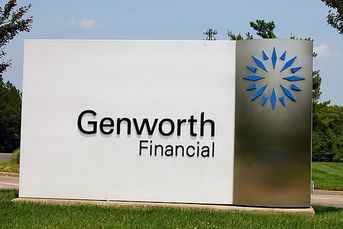The secrets of the top advisers
Gregory Vaughan has the demeanor of your favorite college professor — accessible, attentive and humble
Gregory Vaughan has the demeanor of your favorite college professor — accessible, attentive and humble. It’s not the alpha dog mentality you might expect of the nation’s top financial adviser according to Barron’s latest Top 100 ranking.
“Maybe it’s better to be lucky than smart. I work in Silicon Valley, one of the great wealth creation centers of the world,” Mr. Vaughan said during a panel discussion at the annual Investment Management Consultants Association conference in Las Vegas last week.
Luck has had little to do with it. Mr. Vaughan has spent his 30-year career with what is now Morgan Stanley Smith Barney LLC, building an extraordinary book of 120 clients. The investible-assets minimum for his prospective clients — though it is not hard and fast — is $5 million, and he currently manages $9.6 billion in assets.
How did Mr. Vaughan build his book? Listening.
“When you become a good listener, good things happen. And if you do a good job for clients, the referrals come,” he said. The referrals have been flowing in to his Menlo Park, Calif., office, where he works with three partners, and existing clients are staying. “We have a very high level of service. We structure our days around communicating with clients.”
Given that so many investors dump advisers because of inadequate communication, Mr. Vaughan makes a point of keeping in touch with his clients, speaking with them at least once a quarter and meeting face to face at least twice per year. “Our best clients are our competitors’ best prospects,” he pointed out. “Be the person they call about anything important financially, and call them when bad things happen. If you don’t, you’ll be out of business quickly.”
He may be a receptive listener, but he’s not afraid of speaking up for his clients’ best interests. “One of the things of greatest value you can do for a client is to stop them from doing something silly.” He said that early in his career, he was often intimidated about challenging a client when he disagreed with them. “Now, I challenge them. Over time, I’ve found that people want to be challenged and they want different points of view.”
For advisers to high-net-worth clients, the personal touch is extraordinarily important. If clients feel they’re not getting adequate attention, they won’t stay. “Trust is the most important thing with clients,” said Steve Lockshin, an adviser with Convergent Wealth Advisors whom Barron’s ranked 13th. “I used to think that clients didn’t pay us to socialize and interact with them, but I’ve changed my thinking on that.”
Like Mr. Vaughan, Mr. Lockshin sees a big part of his job as telling clients not what they want to hear, but what they need to hear. And very often, it may not be about investment planning at all. “You can often do a lot more for someone with $10 million in assets [by] advising them on tax or estate planning rather than just investment planning,” Mr. Lockshin said.
The advisers on the panel suggested that a key factor in their success was running their practices as a business. Mr. Lockshin said that three years after he opened his business, he decided to hire a chief financial officer/chief operating officer to run much of the administrative functions of the business, and saw immediate results. “It allowed me to focus on what I do best [investment management].”
Alexander Williams, a UBS Financial Services Inc. adviser, said that advisers have to be careful not to spread themselves too thin. “You can’t try to be all things to all people. Ask yourself the question, “Am I spending my time taking the business where I want it to be?’” he said. “Taking on time-intensive clients can be a big mistake. It’s not worth it.”
Firing clients is never easy. While the evolution of his business has taken him further up the scale of wealthy investors, Mr. Vaughan said that letting a client go feels wrong to him. “I think you have to be really smart about who you bring on because when you take on a client, you’ve made a commitment to them.”
E-mail Andrew Osterland at [email protected].
Learn more about reprints and licensing for this article.




